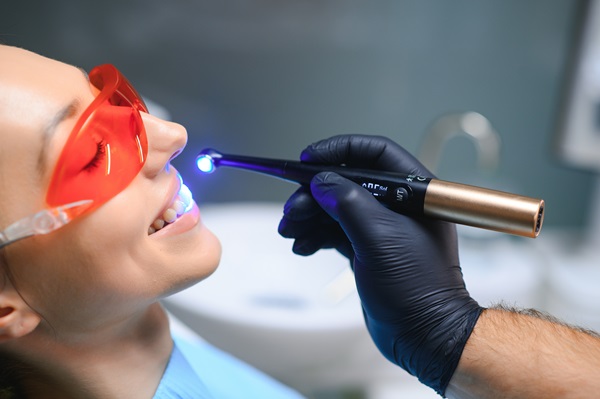What to Expect at a Professional Teeth Whitening Visit

Professional teeth whitening produces excellent results within a short period. Done under the dentist’s supervision, this method of whitening has become popular among those who are either displeased with the outcome of over-the-counter options or do not want the fuss of getting professional take-home kits. If you have an appointment with the dentist for teeth whitening, this article talks about what to expect during your visit.
What to expect during professional teeth whitening
In-office teeth whitening is quick and straightforward, but the skills and expertise of the dentist are vital to prevent injuries to the gum tissues. When handled by the dentist, the whitening procedure is safe, and any side effects can be resolved promptly. The dentist uses a bleaching agent, usually hydrogen peroxide, to eliminate stains and whiten the teeth. They are qualified to handle higher concentrations of peroxide than what is available in over-the-counter teeth whitening kits.
During the appointment, the dentist will double-check to ensure the candidate is eligible for teeth whitening. They will not recommend teeth whitening for people with inflamed gums or tooth decay until the issue is resolved.
The entire whitening procedure usually lasts between 60 to 90 minutes, depending on the level of shade to be achieved. The following are the steps involved in professional teeth whitening:
Preparation
Before commencing treatment, the dentist will make a note of the teeth’s current shade. Afterward, they will polish the teeth and remove any plaque present on the surface. The dentist may use gauze to isolate the mouth and keep the teeth moisture-free. Retractors may be used to protect the cheeks, tongue and lips from the whitening agent. Another barrier may be added along the gumline to shield the gums further.
Whitening
Next, the dentist will coat the front portion of the teeth with the whitening solution, which could have carbamide or hydrogen peroxide as the bleaching agent. Some whitening gels require a curing light or laser to activate the whitening agent and accelerate the whitening process. After the application, the dentist will leave the solution on the teeth for about 30 to 60 minutes.
After getting the desired shade or the maximum time has elapsed, the dentist will rinse the teeth. They may apply fluoride on the teeth to ease tooth sensitivity, a common side effect of teeth bleaching. Additional appointments will be scheduled until the teeth have the desired shade.
The results of a professional teeth whitening vary depending on factors such as the original color of the teeth, the whitening method, the food or drinks consumed afterward and the level of oral hygiene after whitening.
Aftercare
After completing the procedure, patients will be advised to avoid highly pigmented foods and drinks for another 24 hours. Examples include tea, tomato sauce, yellow mustard, red wine, coffee, tea, beets and black grapes. They must also avoid tobacco products and smoking.
Final note
Your first step to getting professional teeth whitening is finding the right dentist for the procedure. The results of the treatment are faster and more durable than many OTC options. Book an appointment today to get started.
Request an appointment here: https://www.alluredentalchicago.com or call Allure Dental at (312) 248-7517 for an appointment in our Chicago office.
Check out what others are saying about our services on Yelp: Read our Yelp reviews.
Recent Posts
Showing off your pearly whites is less appealing when your teeth are a few shades darker than you prefer. Many people turn to teeth whitening products because, with time, teeth begin to turn yellow due to thinning of the enamel and the consumption of acidic foods and beverages. Smoking or using tobacco products can also…
Think you might need a dental filling? Read on to learn more about this treatment. Tooth decay is one of the most common oral health conditions. When untreated, it can result in serious dental problems including tooth loss. Dental fillings restore the structure and function of the affected teeth. Knowing the importance of dental fillings…
Denture care is one of the most essential steps in preventing gum disease. Gum disease can lead to tooth loss and other health issues like heart disease, stroke, and diabetes. Dentures are a common and vital dentistry tool dentists use to repair tooth damage, fill cavities or even replace missing teeth. Dentures play a considerable…
When you have dentures, you must remember this: proper denture care starts with treating your dentures just like natural teeth. You should keep your dentures clean and shiny to help maintain your new smile. Keeping your dentures and mouth clean will help to extend the life of your new smile! Here are four tips on…


